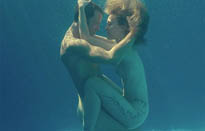Turn off the subtitles – that is my first piece of advice for those sitting down to watch Café de Flore, a remarkable film produced last year by Jean-Marc Vallée, award-winning Québécois writer and filmmaker. Garnering thirteen nominations at the 2012 Genie Awards, Café de Flore is a cinematic masterpiece that incorporates stunning visual detail with a musical soundtrack that not only guides the viewer through each scene, but acts as an underpinning to the carefully built albeit complex storyline.
Set simultaneously in 1960s Paris and modern-day Montreal, this multi-strand and somewhat dark film conveys the powerful relationship between a mother (specifically, French actress Vanessa Paradis) and her mentally disabled son, and the tale of a thirtysomething father and DJ (Kevin Parent) who leaves his lifelong love for another woman.
Thematically, this film questions the age-old concept of the one and only ‘soul mate’, and the complexities inherent to each version of love – love for a child, for a parent, or for a lover. Subtle anachronistic elements within the plotline reveal the numerous avenues by which Vallée carefully intertwines the two eras and the two families. Multiple interpretations of the plot’s conclusion are not only inevitable but encouraged – I have seen this movie twice, and each viewing has brought out new and fascinating details that have me once again questioning Vallée’s intentions.
Interestingly, this French language film also combines the cultural and language differences of French-speakers in both France and Québec. Vallée actually filmed in both France and Montreal; Parc Lafontaine, Café Olimpico and Piknic Électronik all make guest appearances. As well, the beautiful cinematography and intriguing script really make this film stand out among what seems to be a resurgence of great Québec film productions in the last year, including Monsieur Lazhar and Incendies. Café de Flore is yet another example of the great cinematic talent Montreal has to offer.
~ Tyler Yank @Tyler_The_Girl



 Follow Us On Instagram
Follow Us On Instagram
